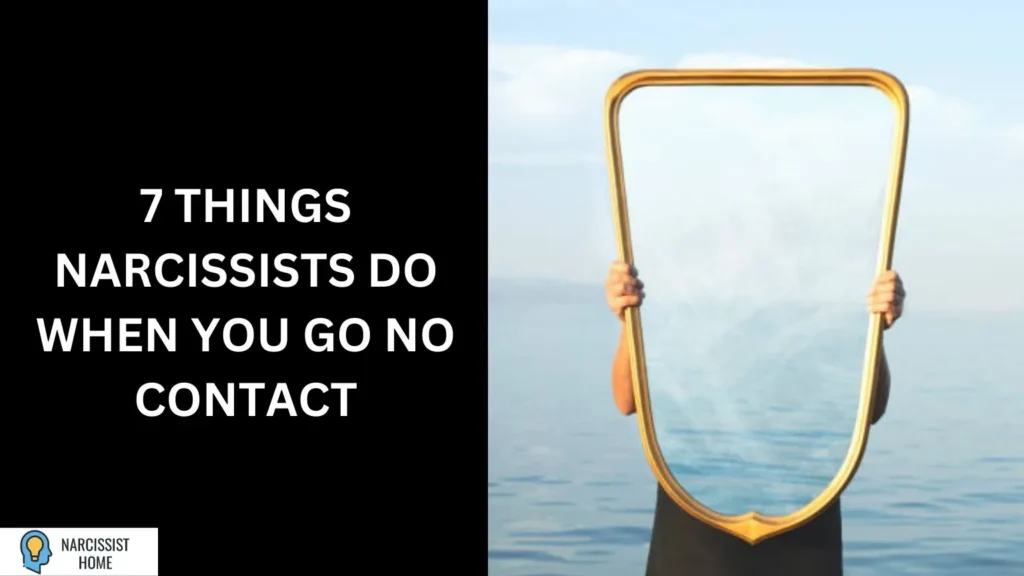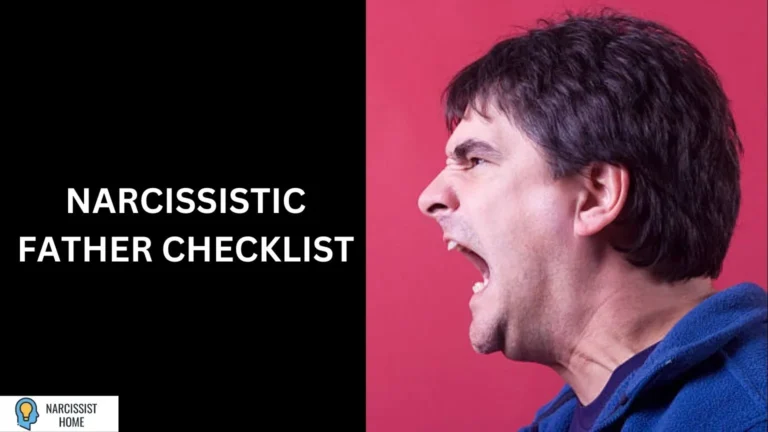7 Things Narcissists Do When You Go No Contact (Guide) 2024
When dealing with toxic relationships involving narcissists, going no contact can be a crucial step toward reclaiming one’s mental and emotional well-being.
7 Things Narcissists Do When You Go No Contact, However, this decision often triggers specific behaviors from narcissists aimed at re-establishing control or causing emotional turmoil.

What is Narcissism?
Before delving into the behaviors of narcissists during no contact, it’s essential to understand narcissism.
Narcissistic Personality Disorder (NPD) is characterized by a pervasive pattern of grandiosity, a constant need for admiration, and a lack of empathy for others.
Why People Choose No Contact
People opt for no contact with narcissists to protect themselves from further emotional abuse, manipulation, and gaslighting. It’s a strategy to set clear boundaries and prioritize one’s mental health.
7 Things Narcissists Do When You Go No Contact
When you have no contact with a narcissist, their behavior can escalate as they try to regain control or manipulate the situation.
Here are seven common things narcissists may do during this period:
Ignoring and Dismissing Boundaries
Narcissists often disregard boundaries set during no contact, showing up unannounced or contacting through various means despite being told not to.
Hoovering Attempts
Narcissists may resort to hoovering, where they try to suck you back into the relationship through promises, apologies, or guilt-tripping.
Smear Campaigns
To damage your reputation and turn others against you, narcissists may launch smear campaigns filled with lies and exaggerations.
Playing the Victim
They might portray themselves as the victim, painting a distorted narrative to garner sympathy and manipulate others into breaking no contact.
Gaslighting and Manipulation
Gaslighting intensifies during no contact, with narcissists attempting to make you doubt your reality, memories, and perceptions.
Attempts to Gain Sympathy
Using pity as a tool, narcissists may feign illnesses, crises, or hardships to evoke sympathy and break your resolve.
Seeking Revenge or Retaliation
Some narcissists resort to vindictive actions, seeking revenge or retaliation for your decision to go no contact.
Effects of Narcissistic Behavior During No Contact
When you decide to go no contact with a narcissist, they often resort to certain behaviors to regain control.
These actions can include relentless attempts at communication, guilt-tripping tactics to make you feel responsible, spreading rumors or lie about you to tarnish your reputation,
playing the victim to garner sympathy from others, refusing to respect your boundaries by showing up uninvited or contacting your friends and family,
trying to manipulate you into feeling sorry for them, and occasionally resorting to threats or intimidation to force you to resume contact.
These behaviors highlight the narcissist’s desperation and lack of empathy, making it crucial to stay firm in your decision to prioritize your well-being.
How to Stay Strong During No Contact?
Staying strong during no contact involves reaffirming your decision, seeking support from trusted individuals, practicing self-care, and engaging in therapy if needed.
To stay strong during no contact with a narcissist, focus on:
- Setting Boundaries: Clearly define what behavior is acceptable and stick to it.
- Self-Care: Prioritize your well-being through activities that promote mental and emotional health.
- Support System: Surround yourself with supportive friends or professionals who understand your situation.
- Stay Busy: Engage in hobbies or work that distracts you and builds your confidence.
- Therapy: Consider therapy to process emotions and develop healthy coping strategies.
Seeking Support and Therapy

When someone chooses to cut ties with a narcissist, it often initiates a predictable pattern of behavior from the narcissist.
These behaviors can include attempts to guilt-trip you back into contact, spreading rumors or lies about you to damage your reputation, and using flying monkeys (friends or family members) to manipulate you.
They may also try to hoover you back into the relationship by feigning remorse or sudden changes in behavior, only to revert to their old ways once you return.
Narcissists may also resort to gaslighting, where they deny or distort reality to make you doubt your perceptions and decisions. Another tactic is projecting their faults onto you, making you feel responsible for the problems in the relationship.
Finally, some narcissists may escalate to threats or harassment when their usual manipulation tactics fail.
People also ask
What happens to a narcissist when you go no contact?
When you have no contact with a narcissist, they may exhibit various behaviors such as hoovering (trying to draw you back),
gaslighting (manipulating the truth to make you doubt yourself), smear campaigns (spreading false information),
self-pity, silent treatment, attempts at reconciliation, and seeking alternative sources of narcissistic supply.
What does silence do to a narcissist?
Silence can unsettle a narcissist as it denies them the attention and validation they crave, leading to feelings of frustration, insecurity, and a loss of control over the situation.
What happens when you don’t reach out to a narcissist?
When you don’t reach out to a narcissist, they may experience feelings of rejection, abandonment, and anger.
They might intensify their efforts to regain contact, resorting to tactics like hoovering, guilt-tripping, or seeking alternative sources of validation.
How does the narcissist react when he realizes you no longer care?
When a narcissist realizes that you no longer care, they may initially feel a sense of shock or disbelief.
This realization can trigger attempts to regain your attention through dramatic gestures, manipulation, or seeking validation elsewhere.
Over time, they may become resentful or seek revenge, depending on their personality traits and coping mechanisms.
Conclusion
In conclusion, having no contact with narcissists can trigger a range of behaviors aimed at regaining control or manipulating the situation.
Recognizing these tactics is essential for individuals seeking to protect their well-being and establish healthy boundaries in toxic relationships.






